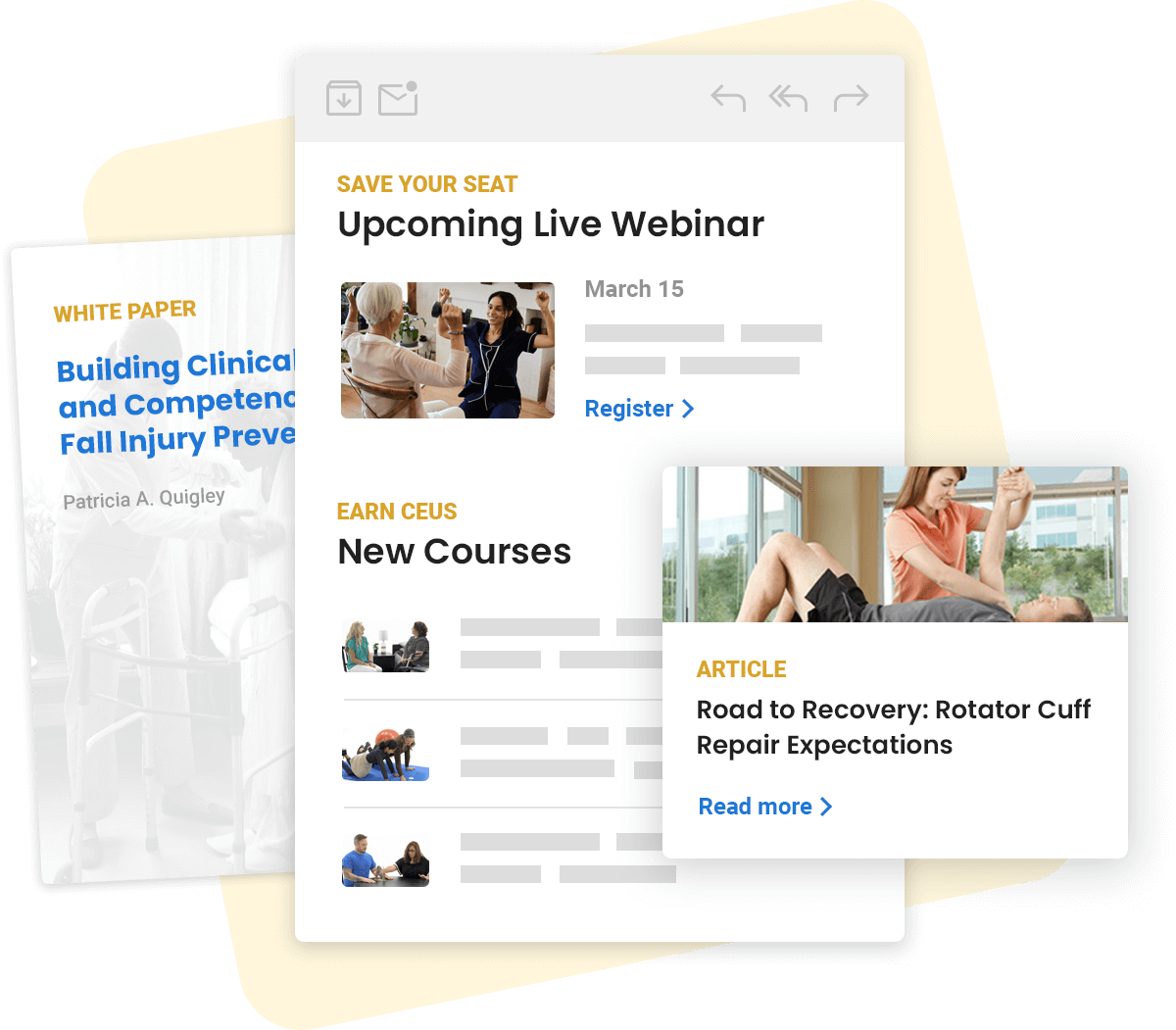20 Questions to Establish Meaningful Goals in Cognitive Communication Therapy

Cognitive-communication skills are the mental skills we use while performing daily activities that involve communication. These fundamental skills include attention, memory, problem solving, and executive function skills.
Finding a personally meaningful goal for cognitive-communication therapy can be challenging, as patients may have decreased awareness about and insight into their challenges. Nevertheless, finding a goal that is personally relevant to your patient is essential, as it will become the foundation on which you build their therapy plan and drive the course of treatment you present.
The Problem with Patient Interviews
Patient interviews are essential to the assessment process as they can provide valuable insight into the nature of your patient’s trouble and help you create a treatment plan. But what happens when the interview process is a dead end? Consider this interview:
SLP: You mentioned that you’re having trouble with your memory lately. What do you have trouble remembering?
Patient: Everything.
SLP: Can you give me some examples?
Patient: Well, I used to be able to remember the names of my favorite actors.
SLP: What about the names of people you know?
Patient: Oh, I have trouble with everyone’s name. I’ll see someone I haven’t seen in a while and their name won’t come to me until later, if at all.
SLP: What about people you see all the time? Do you have trouble remembering their names?
Patient: No. I know their names.
SLP: Alright, that’s good. Can you tell me a little about how your memory causes you trouble in your day-to-day life?
Patient: I’m not sure. I can’t remember. Haha.
For many SLPs, conversations like this are common. Such interactions are like a passenger asking a taxi driver to take him somewhere nicer, but he cannot provide a destination point or even define what “nicer” means. It can be a frustrating scenario for all involved and to get everyone where they want to be the process by which information is requested and obtained needs to change.
Adjusting your intake questions and approach will help to elicit more productive responses that not only allow you to form the best treatment plan, but also motivate the patient to adhere to the plan you set forth.
Questions to Foster Engagement
The following ten questions will help you fine-tune your assessment tasks and therapy goals. This approach is derived from a process called motivational interviewing, which aims to engage patients in their plan of care by encouraging them to discover their own personal reasons for wanting to improve their current condition.
These questions are designed to be open-ended and engage patients in conversation, allowing you to evaluate their readiness for therapy:
- Tell me about your memory…
- What do you notice about your memory?
- How is your memory impacting you?
- What were you previously able to remember that you can’t remember now?
- What would be better for you if you had a better memory?
- What do you need to be able to do that you can’t do now?
- On a scale of 1 to 10, how confident are you that you can improve your memory?
- What would make you more confident about working on your memory?
- On a scale of 1 to 10, how ready are you to improve your memory?
- I have some ideas about how to help. What’s most important for you to discuss?
If our patient or their family has good insight into their impairment and have clear ideas for what they would like to improve, these questions will allow for these thoughts to come to light. If not, the following ten questions will use specific, real-world activities to unearth the exact difficulties the patient is experiencing.
Questions to Reveal Specific Difficulties
Focusing on real-world activities helps unearth meaningful targets for assessment and intervention. In this context, “meaningful” means improving our patient’s ability to participate in one of their daily activities. Making a shopping list, getting together with friends, and balancing a checkbook are not meaningful if our patient does not perform these activities and has no plans to start.
These ten questions will help target the specific areas your patient finds challenging in their everyday life:
- Do you have trouble keeping track of time?
- Any trouble accomplishing the things you want to do?
- Would you like to improve your ability to manage your bills and finances?
- Do you have trouble taking your medicine as your doctor instructs?
- Have you noticed any trouble using a regular phone or a cell phone?
- Do you have new difficulties using a computer?
- Do you have trouble understanding the newspaper or other reading material?
- Would you like to improve your ability to remember names or other information?
- Are you noticing any difficulty in learning new skills or procedures?
- Do you have trouble keeping track of conversations?
You may also find this two-page checklist of more than 50 memory-activating activities for patients helpful.
To learn more about designing person-centered, meaningful cognitive-communication therapy, MedBridge instructor Sarah Baar offers the following courses: Creating Functional Home Programs and Close the Game Closet: Evidence & Tools for a Person-Centered Approach for Treatment of Adult Neurogenic Disorders.









